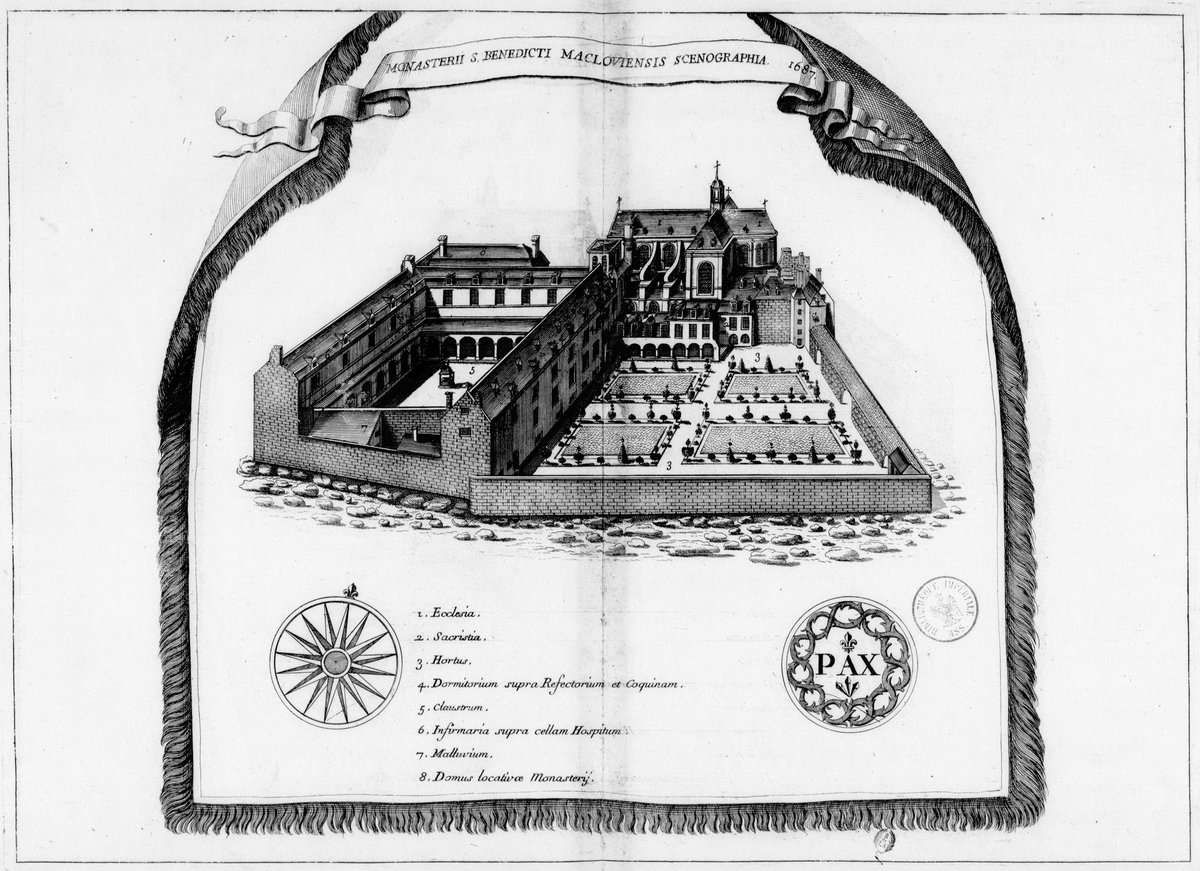
Palais de Justice de Saint-Malo: Visiting Hours, Tickets, and Historical Guide
Date: 14/06/2025
Introduction
The Palais de Justice de Saint-Malo is more than just a working courthouse; it is a monument to the city’s transformation from a religious stronghold to a modern civic landmark. With origins in the 17th-century Benedictine Abbaye Saint-Benoît, the site encapsulates centuries of local history and architectural evolution. Today, its contemporary courthouse—opened in 2018 on Avenue Aristide-Briand—blends modern French judicial design with Saint-Malo’s maritime heritage, serving as both a symbol of justice and a gateway to the city’s many historical attractions. This definitive guide explores the Palais de Justice’s layered past, architectural significance, visiting information, accessibility, and its place in Saint-Malo’s vibrant urban landscape (Monumentum, APIJ Justice PDF, PSS-Archi).
Table of Contents
- Origins and Early History
- From Abbey to Judicial Landmark
- Modern Relocation & Architectural Renewal
- Key Architectural Features
- Visiting the Palais de Justice: Hours, Tickets & Tips
- Accessibility & Visitor Experience
- Nearby Historical Sites
- Heritage Protection
- Notable Dates & Events
- Frequently Asked Questions (FAQs)
- Conclusion & Travel Resources
Origins and Early History
The site now occupied by the Palais de Justice was originally home to the Abbaye Saint-Benoît, a 17th-century Benedictine monastery integral to Saint-Malo’s religious and social fabric. The abbey’s church and cloister, constructed in this period, are notable for their architectural merit and have been protected as historical monuments since 1946 (Monumentum). Following the secularization movements of the French Revolution, the abbey’s buildings were repurposed for civic functions, laying the groundwork for their future judicial use.
From Abbey to Judicial Landmark
By the 19th and 20th centuries, the former abbey was fully integrated into the city’s judicial system, becoming the original Palais de Justice. Key elements such as the abbey’s chapel and cloister were preserved, providing a window into 17th-century Brittany even as the building’s function shifted from spiritual to legal authority. The ongoing preservation of these spaces reflects their cultural and historical value, especially during public events like the Journées du Patrimoine (Heritage Days), when they are occasionally accessible to visitors.
Modern Relocation & Architectural Renewal
Responding to the growing needs of Saint-Malo’s judicial system, a new courthouse was constructed outside the historic city walls on Avenue Aristide-Briand. This relocation, inaugurated in 2018 and designed by architect Bruno Gaudin, was part of a broader urban renewal effort (APIJ Justice PDF). The new Palais de Justice unites several judicial bodies—including the Tribunal Judiciaire, Tribunal d’Instance, Tribunal de Commerce, and Conseil de Prud’hommes—under one modern, efficient, and accessible roof.
Key Architectural Features
The contemporary Palais de Justice exemplifies the evolving principles of French courthouse design: balancing monumentality with transparency, accessibility, and civic identity. Noteworthy features include:
- Façade & Materials: A granite base anchors the building, echoing Saint-Malo’s fortifications, with glass and aluminum upper levels offering light and openness (PSS-Archi).
- Main Hall (“Salle des pas perdus”): A spacious, double-height entry hall filled with natural light, designed for both dignity and public accessibility.
- Spatial Organization: Three public courtrooms, additional hearing rooms, administrative offices, and clear separation of public, judicial, and secure circulation flows.
- Accessibility: Ramps, elevators, and barrier-free routes ensure access for all visitors (APIJ Lettre Info).
- Landscape & Urban Context: The courthouse is surrounded by a landscaped parvis and is just a ten-minute walk from the train station, connecting administrative functions with the broader city.
Visiting the Palais de Justice: Hours, Tickets & Tips
- Opening Hours: Monday–Friday, 9:00 AM – 5:00 PM. Closed weekends and public holidays.
- Admission & Tickets: Entry to public areas is free; tickets are not required. Access to courtrooms is restricted to those with official business or during public hearings.
- Historic Abbey Site: The original chapel and cloister are not open daily but can be visited during special events such as Heritage Days (September). Admission is free at these times.
- Guided Tours: Occasionally available for school groups or local organizations; contact the Saint-Malo tourist office or courthouse administration to inquire.
- Photography: Permitted in public areas; strictly prohibited in courtrooms.
Accessibility & Visitor Experience
- Mobility: The building is fully accessible, with ramps, elevators, and designated parking for visitors with reduced mobility.
- Security: All visitors must pass security screening. Formal attire is encouraged; avoid beachwear.
- Language: French is the primary language; consider translation aids if needed.
- Visitor Conduct: Respectful behavior is expected, as the courthouse is a place of work and legal proceedings.
Nearby Historical Sites
While visiting the Palais de Justice, explore Saint-Malo’s other renowned attractions:
- Intra-Muros: The medieval walled town, famous for its ramparts, cobblestone streets, shops, and restaurants (Simply France, monsieur-de-france.com).
- Saint-Vincent Cathedral: A Gothic cathedral largely rebuilt after WWII.
- Château de Saint-Malo: A fortress housing the city museum.
- Fort National: A 17th-century fort accessible at low tide.
- Tour Solidor: A medieval tower with panoramic views of the Rance estuary.
Heritage Protection
The original abbey’s chapel and cloister remain protected as historical monuments and are recognized for their architectural value (Monumentum). The modern courthouse, while not historic, is considered an important civic landmark and a model of contemporary public architecture (Justice.gouv.fr).
Notable Dates & Events
- 1946: Listing of the abbey chapel and cloister as historical monuments.
- May 2018: Inauguration of the new Palais de Justice (APIJ Justice PDF, p. 4).
- Annual Heritage Days: Special access to the historic abbey site with guided tours.
Frequently Asked Questions (FAQs)
Q: What are the visiting hours for the Palais de Justice de Saint-Malo?
A: Monday–Friday, 9:00 AM – 5:00 PM. Closed weekends and public holidays.
Q: Do I need a ticket to visit?
A: No, entry is free for public areas. Access to courtrooms is for official business or public hearings only.
Q: Can I visit the historic abbey site?
A: Only during special events like Heritage Days, typically in September.
Q: Is the building accessible for people with reduced mobility?
A: Yes, the courthouse is fully accessible.
Q: Can I take photos inside?
A: Only in public areas. No photography in courtrooms or restricted spaces.
Q: Are guided tours available?
A: Occasionally, for organized groups; contact the tourist office or courthouse for details.
Conclusion & Travel Resources
The Palais de Justice de Saint-Malo offers a unique perspective on the city’s evolution—merging centuries-old heritage with modern civic life. Whether you’re interested in architecture, history, or simply exploring Saint-Malo’s key sites, the courthouse makes for a meaningful stop. Combine your visit with explorations of Intra-Muros, Fort National, and the city’s other landmarks for a comprehensive Saint-Malo experience.
For current information on visiting hours, special events, and accessibility, consult:
Download the Audiala app for guided tours, event updates, and insider tips on Saint-Malo’s historical and architectural sites.
Sources
- Monumentum: Saint-Malo ancienne abbaye Saint-Benoît actuellement Palais de justice
- APIJ Justice: Palais de Justice de Saint-Malo PDF
- PSS-Archi: Palais de Justice de Saint-Malo
- Justice.gouv.fr: Architecture Principles
- Saint-Malo Tourist Office
- Simply France: Tourist Guide to Saint-Malo
- monsieur-de-france.com: Saint-Malo guide
- cours-appel.justice.fr: Tribunal Judiciaire de Saint-Malo
- village-justice.com: Barreau de Saint-Malo










